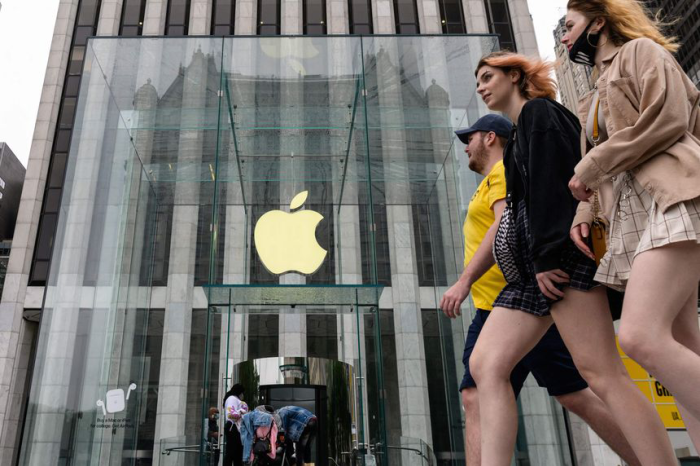Apple Likely Has More App Store Deals to Make
Changes so far wonŌĆÖt cause much pain for the tech giant, but loss of payment exclusivity still possible
By The Wall Street Journal Sep 08, 2021 (Gmt+09:00)

As┬ĀApple┬ĀInc. works to negotiate its way out of its App Store troubles, one thing is becoming increasingly clear: the technology titan might have to start competing on its own playing field.
The past couple of weeks have brought some compromises from a company not accustomed to compromising. Last week, Apple said┬Āit would begin allowing media apps, which would include services such as┬ĀNetflix┬Āand Spotify, to have an in-app link to their websites. That followed a change announced the week prior that would allow developers to notify customers via email of┬Āalternative payment options┬Āoutside of AppleŌĆÖs own system.
Those changes came as a result of legal pressure, but they fall well short of what other adversariesŌĆöand some lawmakersŌĆösay is necessary.
Most at issue is AppleŌĆÖs requirement for apps to use its own payment system for in-app purchases. Some critics even want to end AppleŌĆÖs practice of tightly controlling which apps can appear on its devicesŌĆöa key facet of┬Āthe so-called walled garden┬Āthat has made AppleŌĆÖs┬Āmobile device ecosystem far more lucrative┬Āthan the much larger Android platform run by Google. Analysts estimate that AppleŌĆÖs App Store generates nearly twice the annual revenue of GoogleŌĆÖs Play Store even though Android powers nearly three-quarters of the worldŌĆÖs mobile devices, according to market researcher StatCounter.
AppleŌĆÖs walled garden and payment limitations are key issues in the case brought by Epic Games. The federal judge who presided over the trial earlier this summer is expected to issue a ruling soon. A loss would be another serious dent in AppleŌĆÖs armor, but even a victory for the iPhone maker seems unlikely to settle the issue.
A bill passed last week in South Korea┬Āwould prohibit Apple and Google from mandating their own payment systems for in-app purchases. Lawmakers in the U.S. and the European Union┬Āare considering similar measures. Apple might draw less political flak than fellow tech giants Google, Facebook and Amazon, but its tight control of the App Store and its $2.5 trillion market capitalization still make it a tempting target for regulators looking to rein in big tech.
Investors should therefore brace for more changesŌĆöespecially since the ones already announced donŌĆÖt seem likely to cause much financial pain for Apple. A team of Morgan Stanley analysts covering videogame stocks wrote that allowing developers to email users outside of apps ŌĆ£is a higher friction process that will likely only succeed with a minority of gamers.ŌĆØ Analysts for Evercore ISI said the changes demanded by the South Korean bill would be ŌĆ£meaningfully beneficialŌĆØ for dating app providers such as┬ĀMatch Group┬Āand Bumble if also adopted in the U.S. and Europe. Note that AppleŌĆÖs share price has risen nearly 5% since the first set of changes were announced on Aug. 26, compared with a relatively flat S&P 500 over that time.
Losing the ability to mandate its payment system could threaten a high-margin business expected to generate $21.6 billion in revenue for AppleŌĆÖs fiscal year ending later this month, according to consensus estimates for the App Store business from Visible Alpha.
It is also possible that many people will choose to keep using AppleŌĆÖs system. The company has had a billing relationship with its core customers since the launch of the first iTunes store in 2003. Pierre Ferragu of New Street Research wrote Thursday that ŌĆ£existing purchase patterns will resist changes in the environment,ŌĆØ adding that selling through the App Store ŌĆ£will remain a valuable alternative for app developers.ŌĆØ But Apple may need to sell that idea rather than banking on being the only game in its own special town.
Write to Dan Gallagher at dan.gallagher@wsj.com









